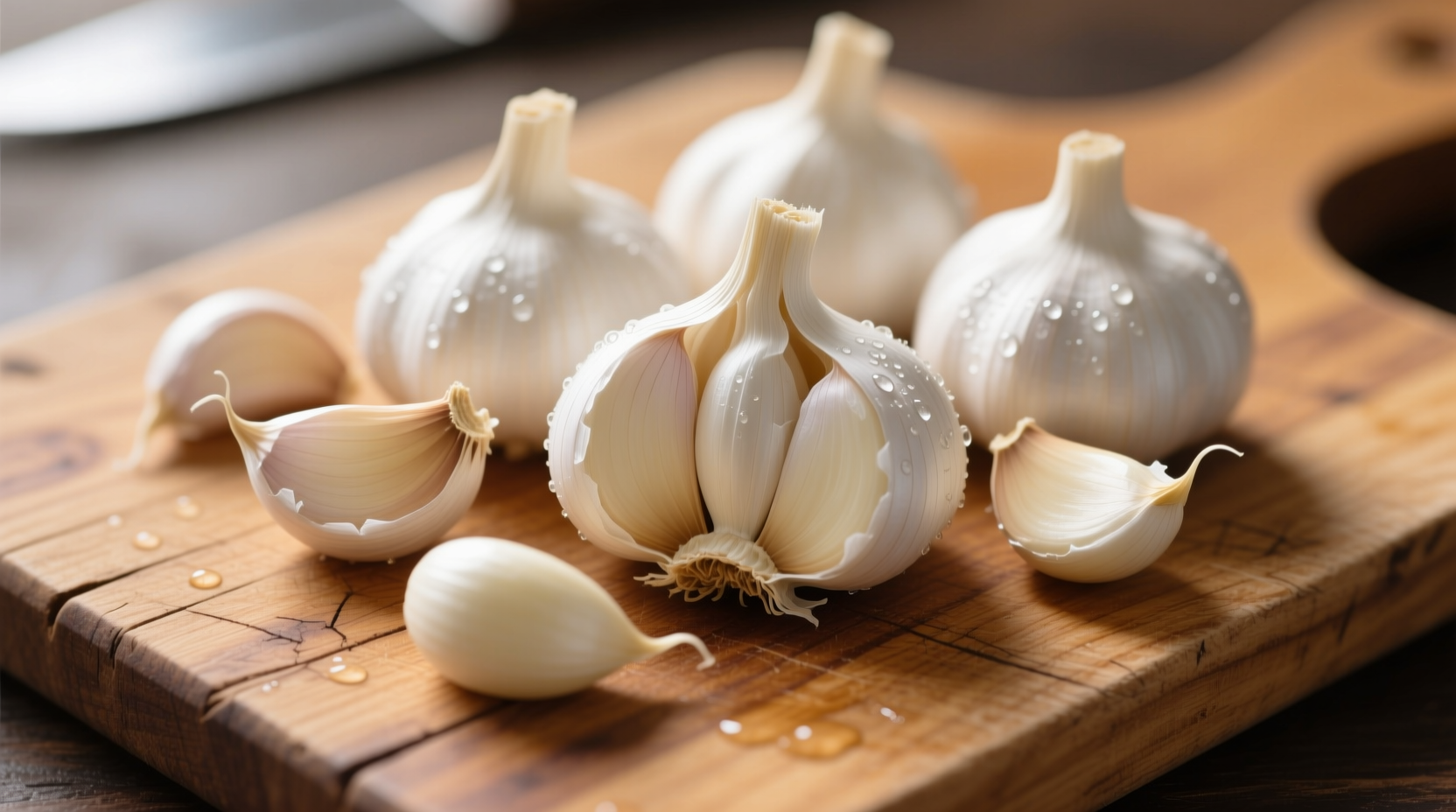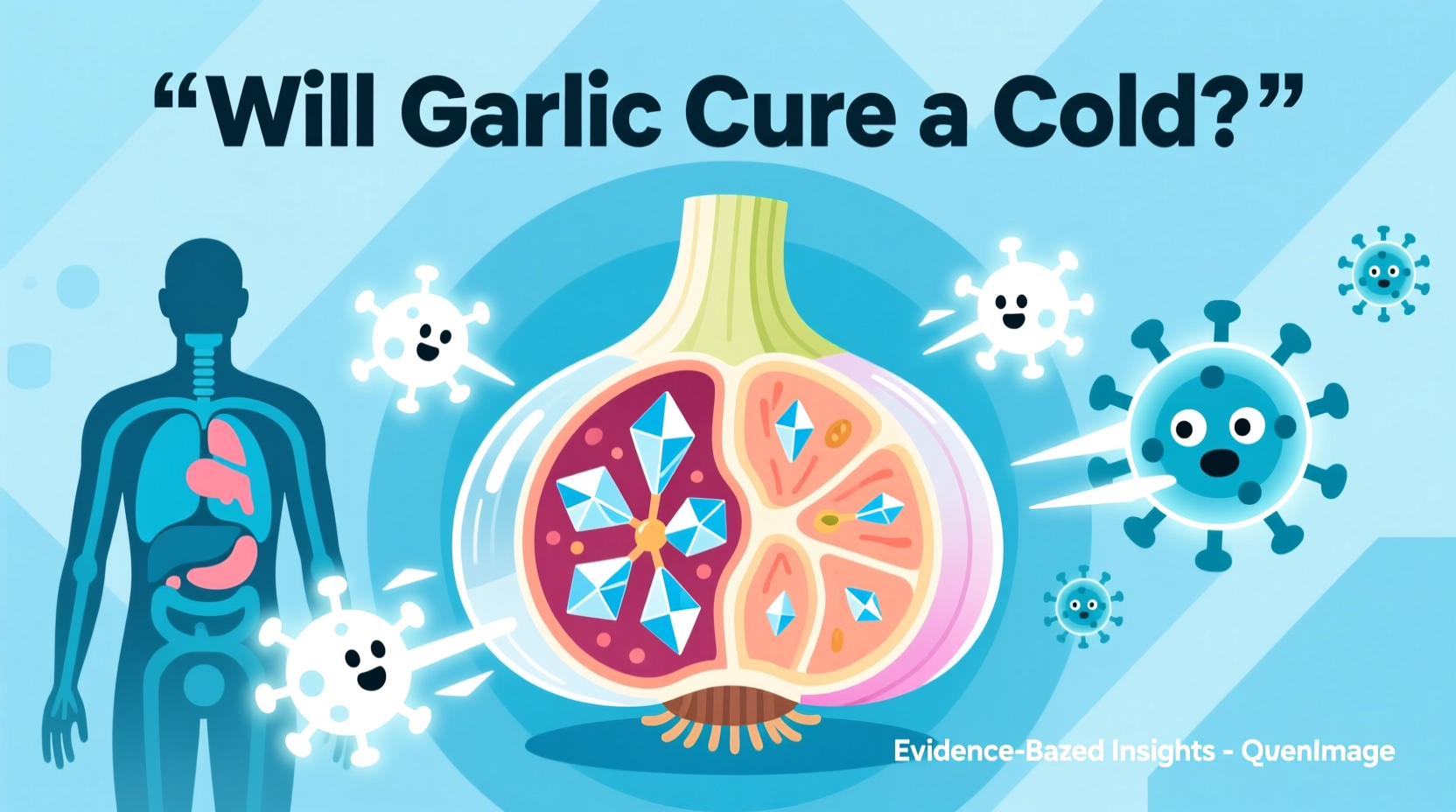When you're battling sniffles and reach for that garlic press, you're tapping into centuries of traditional remedy use. But what does modern science actually say about garlic for cold prevention and treatment? Let's separate culinary folklore from evidence-based facts so you can make informed decisions about using garlic during cold season.
The Science Behind Garlic's Active Compounds
Garlic contains allicin, the sulfur compound responsible for its distinctive aroma and potential health properties. When garlic cloves are crushed or chopped, the enzyme alliinase converts alliin into allicin. This bioactive compound demonstrates antimicrobial and antioxidant effects in laboratory studies.
According to the National Center for Complementary and Integrative Health, allicin shows antibacterial and antifungal properties in test tube studies. However, these laboratory findings don't directly translate to human cold treatment effectiveness.

What Clinical Research Actually Shows
A comprehensive 2014 Cochrane Review analyzed available clinical trials on garlic and cold prevention. The review found:
| Study Characteristic | Findings | Limitations |
|---|---|---|
| Cold prevention potential | 30% reduction in cold incidence with daily garlic supplementation | Based on single high-quality trial with 146 participants |
| Symptom duration | No significant reduction in symptom length | Multiple studies showed inconsistent results |
| Treatment effectiveness | No evidence supporting garlic as cold treatment | Studies focused on prevention, not treatment |
Realistic Expectations for Cold Season
Understanding garlic's role in immune support requires recognizing its limitations. While garlic may contribute to overall immune health as part of a balanced diet, it functions differently than pharmaceutical cold treatments:
- Preventive potential: Regular consumption might slightly reduce cold frequency
- Symptom management: No significant impact on symptom severity or duration
- Treatment capability: Cannot eliminate cold viruses once infection occurs
The Centers for Disease Control and Prevention emphasizes that no food or supplement can cure the common cold, which is caused by over 200 different viruses. Your body's immune system must fight off the infection naturally.
Practical Usage Guidelines for Garlic
If you want to incorporate garlic for potential immune support, follow these evidence-based recommendations:
- Timing matters: Consume fresh garlic regularly throughout cold season, not just when symptoms appear
- Preparation technique: Crush or chop cloves and let them sit for 10 minutes before cooking to maximize allicin formation
- Dosage consideration: Studies used approximately 600-1,200 mg of aged garlic extract daily
- Realistic expectations: View garlic as complementary to other prevention methods, not a standalone solution
More Effective Cold Prevention Strategies
While exploring natural cold prevention methods with garlic, don't overlook these evidence-based approaches with stronger scientific support:
- Hand hygiene: Proper handwashing reduces cold transmission by up to 50%
- Vitamin D: Maintaining adequate levels may reduce respiratory infections
- Zinc supplementation: May shorten cold duration when taken within 24 hours of symptoms
- Adequate sleep: 7-8 hours nightly supports optimal immune function
According to a 2017 review in Nutrients journal, combining multiple prevention strategies yields better results than relying on any single method. Garlic can be part of this approach but shouldn't replace more effective measures.
When Garlic Might Actually Help (And When It Won't)
Understanding the context boundaries for garlic use prevents unrealistic expectations:
- Potential benefit: Regular consumption might slightly reduce cold frequency in healthy adults
- No benefit: Cannot treat existing colds or significantly shorten symptom duration
- Special considerations: May interact with blood thinners and certain HIV medications
- Realistic timeframe: Any preventive effects require consistent consumption over months
Garlic's limitations become clear when comparing it to proven cold treatments. While it may offer modest preventive benefits, it doesn't match the effectiveness of hand hygiene, adequate sleep, or proper hydration for cold prevention.
Safe Incorporation Into Your Diet
To safely include garlic for potential immune support:
- Start with small amounts if you're new to regular garlic consumption
- Monitor for digestive discomfort or allergic reactions
- Consult your healthcare provider if taking blood thinners
- Avoid excessive raw garlic consumption which can cause stomach irritation
Remember that culinary garlic differs significantly from concentrated supplements used in research. A clove or two in your cooking provides flavor and potential benefits without the risks associated with high-dose supplementation.
Frequently Asked Questions
Does eating raw garlic help with colds?
Raw garlic contains higher allicin levels than cooked garlic, but research doesn't show it effectively treats existing colds. Some studies suggest regular raw garlic consumption might modestly reduce cold frequency, but it won't shorten an active cold.
How much garlic should I eat for cold prevention?
Studies showing potential benefits used approximately 600-1,200 mg of aged garlic extract daily. In culinary terms, this equates to one fresh garlic clove daily. Consistent long-term consumption appears more important than occasional large doses.
Can garlic prevent colds completely?
No, garlic cannot completely prevent colds. The best research shows about a 30% reduction in cold incidence with regular consumption. Since colds are caused by over 200 different viruses, no single prevention method offers complete protection.
Is garlic more effective than vitamin C for colds?
Both show limited preventive benefits. A Cochrane Review found vitamin C doesn't reduce cold incidence in the general population but may halve colds in people under heavy physical stress. Garlic shows slightly better preventive potential but neither is a reliable cold prevention method on its own.











 浙公网安备
33010002000092号
浙公网安备
33010002000092号 浙B2-20120091-4
浙B2-20120091-4